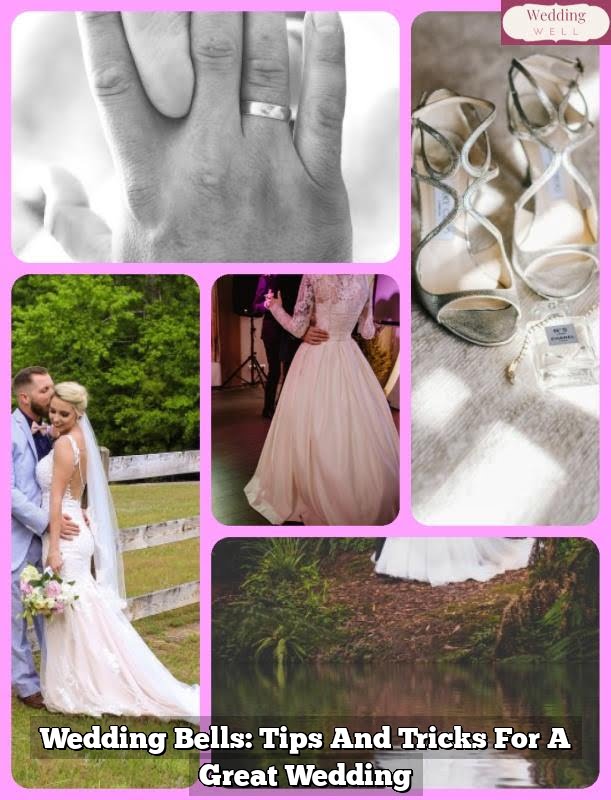Planning a wedding can be one of the most exciting and joyful times in a couple’s life, but it can also come with a hefty price tag. From the venue to the dress to the catering and everything in between, weddings can easily add up to tens of thousands of dollars. The big question on many couples’ minds is: how to pay for a wedding without breaking the bank?
Setting a realistic budget is essential when it comes to planning a wedding. In this article, we will explore various strategies for determining your wedding expenses, saving money, creative financing options such as borrowing and crowdfunding, generating extra income through side hustles, negotiating with vendors, and avoiding common wedding financing pitfalls. Our goal is to help you make your dream wedding a financial reality without sacrificing quality.
By following the tips and advice in this article, you’ll learn how to navigate the high cost of weddings and make informed decisions about how to pay for your special day without accumulating overwhelming debt or compromising on what matters most to you. So let’s dive in and discover practical solutions for financing your dream wedding.
Setting a Realistic Budget
When it comes to planning a wedding, setting a realistic budget is crucial in ensuring that you don’t end up starting your marriage in debt. Determining your wedding expenses involves taking a comprehensive look at all the potential costs associated with the big day.
This includes everything from the venue and catering to attire, music, photography, and flowers. To start, sit down with your partner and make a list of all the items you’ll need to pay for and research the average cost of each in your area.
Once you have a clear idea of what your wedding expenses will entail, it’s important to prioritize and allocate funds accordingly. Decide which aspects are most important to you and where you’re willing to compromise. For example, if having a top-notch photographer is a non-negotiable for you, be prepared to allocate a larger portion of your budget towards this expense.
Additionally, don’t forget to factor in any unexpected or hidden costs that may arise. It’s always better to overestimate your expenses than to underestimate them and be caught off guard by additional charges later on.
By being thorough in determining your wedding expenses from the outset, you’ll be better equipped to create a realistic budget that aligns with your financial situation and priorities. And while figuring out how to pay for a wedding may seem overwhelming at first, having a clear understanding of your expenses is an important first step in making your dream wedding a financial reality.
Saving Strategies
When it comes to paying for a wedding, one of the first steps is to start saving money as early as possible. Setting aside a portion of your income each month can help you build a wedding fund that will alleviate some of the financial stress associated with wedding planning.
One effective strategy is to open a dedicated savings account specifically for your wedding expenses. This will help you track your progress and prevent you from dipping into these funds for non-wedding related expenses.
Another helpful tip for saving money is to cut back on unnecessary expenses in your daily life. This could mean packing lunches instead of eating out, finding more affordable entertainment options, or canceling subscription services that you don’t use regularly. Every dollar saved can go towards your wedding fund, bringing you one step closer to reaching your savings goal.
In addition to traditional methods of saving, consider exploring alternative ways to boost your wedding fund. For example, selling items you no longer need or use can bring in extra cash, and any money earned can be put directly towards financing your big day. Some couples even opt for a “wedding jar” where they deposit loose change and small bills they have at the end of each day as an additional way to save up for their wedding.
| Tips for Building Your Wedding Fund | Data |
|---|---|
| Open a dedicated savings account specifically for wedding expenses | This will help track progress and prevent using the funds elsewhere |
| Cut back on unnecessary daily expenses | Packing lunch instead of eating out; finding more affordable entertainment options; canceling unused subscriptions |
| Explore alternative ways to boost the fund | Sell items no longer needed; deposit loose change and small bills into a “wedding jar” |
Creative Financing Options
When it comes to paying for a wedding, many couples find themselves considering alternative financing options. While traditional saving strategies are beneficial, some may also explore borrowing, lending, and even crowdfunding to help cover the costs of their special day. Here are some creative financing options to consider:
1. Borrowing: Some couples may choose to borrow money from family members or friends to help pay for their wedding. This can be a sensitive topic, so it’s important to approach it with caution and have clear repayment terms in place. Other options include taking out a personal loan from a bank or using a credit card with a low-interest rate.
2. Lending: In some cases, couples may have assets they can leverage to secure a loan for their wedding expenses. For example, they may use the equity in their home or take out a loan against their retirement savings. This option can come with risks, so it’s essential to carefully consider the implications before proceeding.
3. Crowdfunding: With the rise of social media and crowdfunding platforms, some couples are turning to online fundraising to gather financial support from family and friends. Websites like GoFundMe and Kickstarter allow couples to create campaigns specifically dedicated to funding their wedding. While this option can be effective, it’s essential to approach crowdfunding with transparency and humility.
While these creative financing options can provide relief for couples struggling to cover the high costs of weddings, it’s crucial to approach them with careful consideration and realistic expectations. Each option comes with its own set of pros and cons, so it’s essential for couples to weigh their choices carefully before making any decisions on how to pay for a wedding financially.
Generating Extra Income
Side hustles are a great way to bring in some extra income to help cover the costs of your wedding. Whether you’re looking to save up for the big day or just want to have some extra cash on hand, there are plenty of side hustle options that can help boost your bridal budget.
Freelancing or Consulting
One option for generating extra income is to offer your skills and expertise as a freelancer or consultant. Whether you’re a writer, graphic designer, photographer, or have experience in marketing or social media management, there are plenty of opportunities to pick up freelance work in your spare time. Websites like Upwork, Fiverr, and Freelancer.com can help connect you with potential clients looking for your specific skills.
Rent Out Your Property
If you have a spare room, guest house, or even a second property, consider renting it out on platforms like Airbnb or VRBO. This can be a great way to bring in some additional income without requiring too much time and effort on your part.
Part-Time Gigs
Another option for boosting your bridal budget is to pick up part-time work or gigs. This could include anything from driving for a ride-sharing service like Uber or Lyft, delivering food with services like DoorDash or UberEats, or even taking on seasonal roles during busy times of the year.
By exploring these side hustle options and finding ways to bring in some extra income, you can make a significant dent in your wedding expenses and alleviate some financial stress. No matter what route you take, remember that it’s important to strike a balance between earning extra money and still having time for wedding planning and self-care. With determination and creativity, you can find ways to cover the costs of your dream wedding.
Negotiating With Vendors
When it comes to planning a wedding, one of the biggest expenses is often the vendors. Whether it’s the venue, caterer, photographer, or florist, these costs can add up quickly. That’s why negotiating with vendors is a crucial step in making your dream wedding a financial reality.
One of the key strategies for negotiating with vendors is to do your research. Before meeting with potential vendors, be sure to have a clear idea of what you want and what kind of prices are typical for the services you’re seeking. This will allow you to negotiate from an informed position and avoid overpaying for certain items or services.
Another tip for negotiating with vendors is to be open to compromise. Instead of trying to haggle down every single detail, focus on the aspects that are most important to you and where you believe there may be some flexibility in pricing. Perhaps the vendor can offer a lower price if you opt for a simpler package or adjust the timing of their services.
Finally, don’t be afraid to ask for discounts or additional perks. Many vendors are willing to work with couples on pricing or throw in extra features as part of a deal. For example, some venues may offer a discounted rate if you book during their off-peak season, while photographers might include extra prints or an engagement photo session at no additional cost.
Negotiating with vendors can make a significant impact on your overall wedding budget and help ensure that you get the most value for your money without sacrificing your vision for the big day. By being prepared, flexible, and proactive in seeking out deals and compromises, you can make your dream wedding more affordable without compromising on quality.
These strategies can vary among different areas but it is important not forget about considering how to pay for a wedding when negotiating with vendors.
Wedding Financing Pitfalls to Avoid
Wedding expenses can quickly add up, and many couples find themselves in a financial bind when planning for their big day. In this section, we will discuss some common wedding financing pitfalls to avoid in order to make sure you don’t end up overspending or going into debt.
Not Setting a Realistic Budget
One of the biggest mistakes couples make when financing their weddings is failing to set a realistic budget. It’s important to sit down with your partner and determine exactly how much you can afford to spend on your wedding. This means taking into account your current income, savings, and any potential financial help from family members. By setting a clear budget from the beginning, you can avoid overspending and financial stress later on.
Using High-Interest Credit Cards
Another common pitfall is relying too heavily on credit cards with high-interest rates to pay for wedding expenses. While it may be tempting to put everything on plastic, it’s essential to consider the long-term impact of high-interest debt. Instead, explore other financing options such as personal loans with lower interest rates or using funds from a dedicated wedding savings account.
Underestimating Cost Overruns
Many couples fall into the trap of underestimating the costs associated with their wedding. From unforeseen vendor fees to last-minute decor expenses, it’s crucial to plan for potential cost overruns in your budget. By building in a buffer for unexpected expenses, you can avoid scrambling for extra funds or going over your set budget.
By being mindful of these common wedding financing pitfalls and taking proactive steps to avoid them, you can ensure that planning for your special day remains as stress-free as possible. With careful budgeting and smart financial decision-making, you can make your dream wedding a reality without sacrificing your financial well-being. How to pay for a wedding should not be daunting if done strategically and responsibly.
Conclusion
For many couples, the idea of paying for a wedding can seem daunting and overwhelming. However, with careful planning and determination, it is possible to make your dream wedding a financial reality. To provide inspiration and guidance, here are some real-life examples of couples who successfully paid for their weddings from scratch:
1. Prioritizing Saving: One couple set a goal to save a certain amount each month toward their wedding fund. They made sacrifices in their daily spending habits, such as bringing lunches to work instead of eating out, and cutting back on unnecessary expenses. By staying committed to their saving goals, they were able to accumulate enough money to cover their wedding costs without relying on loans or credit cards.
2. Utilizing Creative Financing Options: Another couple utilized creative financing options to pay for their wedding. They borrowed money from family members who were willing to provide interest-free loans, set up a crowdfunding campaign where friends and loved ones could contribute to their wedding fund, and even entered contests and raffles to win prizes that could be used for their big day.
3. Generating Extra Income: In addition to their regular jobs, one couple took on side hustles in order to boost their bridal budget. They started a small business selling handmade crafts online, took on freelance gigs in photography and graphic design, and even pet-sitting services in order to bring in extra income specifically designated towards funding their wedding.
By following these examples of determined couples who managed to pay for their weddings through creative financing and smart saving strategies, you too can find ways how to pay for a wedding that will not leave you drowning in debt after your special day is over.
Bonus Section
In conclusion, it is clear that while the cost of weddings can be overwhelming, there are numerous strategies and options available to help make your dream wedding a financial reality. Setting a realistic budget is the first step in determining your wedding expenses and considering saving strategies such as cutting costs and using cash-back rewards can go a long way in building your wedding fund.
Additionally, creative financing options including borrowing, lending, and crowdfunding are worth exploring for those who need to supplement their wedding budget.
Moreover, generating extra income through side hustles or freelance work can also provide a significant boost to your bridal budget. Negotiating with vendors is another crucial step in getting the most value for your money when planning a wedding. By comparing quotes and being willing to walk away if necessary, couples can drive down costs without sacrificing quality.
Overall, it’s important to be strategic about how you pay for a wedding. Navigating these financing options successfully will require patience and proactive planning, but don’t be discouraged. With careful consideration of these tips and tricks, you too can achieve the wedding of your dreams within your financial means.
Remember that every couple’s situation is unique, so take the time to explore different options and find what works best for you. With determination and creativity, paying for your dream wedding from scratch is definitely possible.
Frequently Asked Questions
How Do Normal People Pay for Weddings?
Normal people pay for weddings through a variety of methods. These may include personal savings, contributions from family members, taking out a loan, or using credit cards to cover certain expenses. Many couples also set up a wedding fund and budget for their big day.
How Am I Supposed to Pay for My Wedding?
When considering how to pay for your wedding, it’s important to start by creating a budget. Factor in all potential costs, from the venue and catering to attire and decorations. You can then explore sources of funding such as personal savings, contributions from family, or even crowdfunding.
What Is the Traditional Way of Paying for a Wedding?
Traditionally, the bride’s family is responsible for covering most wedding expenses, including the ceremony and reception costs. However, in modern times, it’s becoming more common for both families and the couple themselves to share the financial burden. Additionally, some couples opt for small, intimate ceremonies that are less costly and easier to manage financially.

Welcome to my blog about home and family. This blog is a place where I will share my thoughts, ideas, and experiences related to these important topics. I am a stay-at-home mom with two young children. I hope you enjoy reading it! and may find some helpful tips and ideas that will make your home and family life even better!





